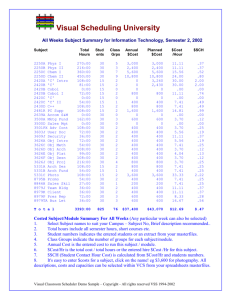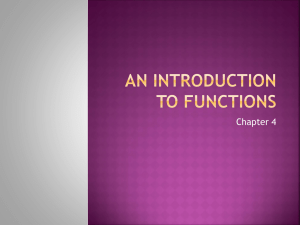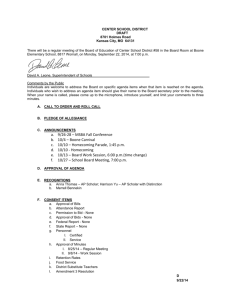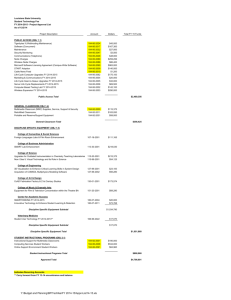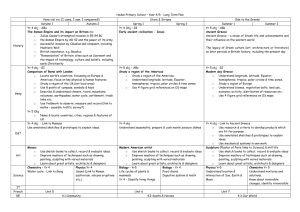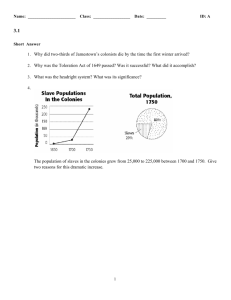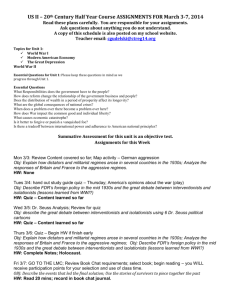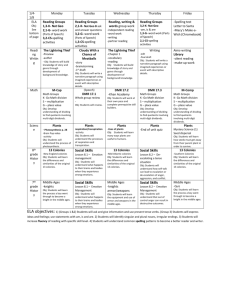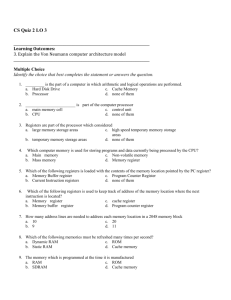Designing Good Tests
advertisement
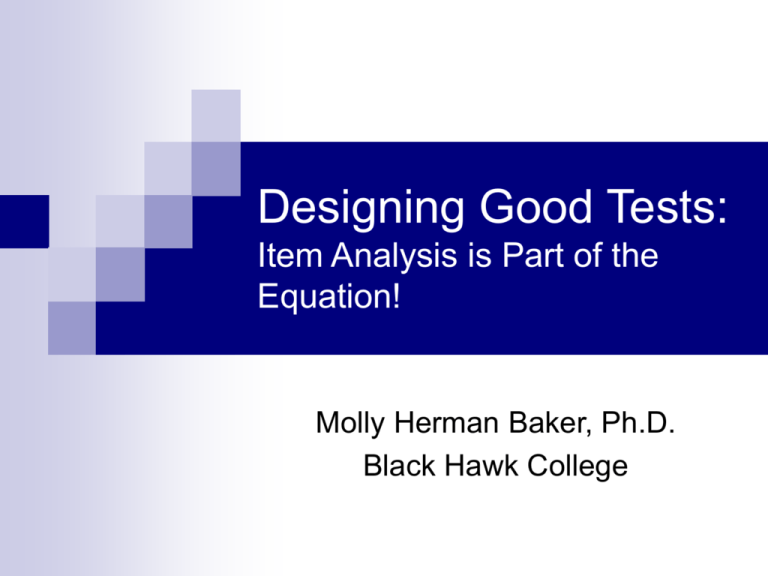
Designing Good Tests: Item Analysis is Part of the Equation! Molly Herman Baker, Ph.D. Black Hawk College Planning Tests Determine amt of time, location, level of difficulty desired, resources available during test, and % weight of test compared to total # of assessments Based on objectives, determine what is important to know, not “nice to know” Based on amt of time, estimate number of questions possible (see Test Writing Basics handout for estimates) Prepare specifications chart Specification Chart Basics Specifications chart: Type and number of items for each content area or objective. Type and number of items for each type of HOT skill (HOT=discipline-specific; Bloom often selected, but others may be more relevant for your discipline) Sample Specifications Chart #1 Obj 1 Obj 2 Explain 2 3 Apply 5 Predict 1 Synthesize 1 1 Total 10 4 2 2 1 Obj 4 1 5 Analyze Evaluate Obj 3 5 2 5 6 15 9 Sample Specifications Chart #2 MC TF Obj 1 (know) 5 5 Obj 2 (apply) 10 5 Obj 3 5 (compre) Obj 4 (apply) Matching Total 5, 2-pt. 1 5-pt. 25 pts 10 5 25 Essay 15 pts Obj 5 (predict) Total Short Ans. 10 10 1 5-pt 20 pts 5, 2-pt 1, 10pt 25 pts 1, 5pt 1, 10pt 15 pts 20 30 100 Writing/Choosing Good Items Write good objectives, using verbs that indicate desired performance; share with students Write/select test items based on these verbs; See “Comparison of Bloom and Ebel’s Taxonomies” handout for samples See “Test Writing Basics” handout Discuss strategies for selecting test bank items What about HOTS? HOTS (Higher order thinking skills)=application, analysis, prediction, synthesis, evaluation or alternative taxonomy relevant to your discipline Important: practice HOT in class (critical thinking, creative thinking, problem-based learning, case-based learning, scenario-based lng) Important: provide guidance, practice & feedback on preparing for and answering HOT exam questions Item Analysis to Improve Tests (Scantron QuickScore II: QC1-106) # correct and # missed per item What # who answered each MC distractor What does this tell you? Correlation between answers and overall test performance (Discrimination Index/Pt. Biserial) What does this tell you? could this tell you? Questions with poor item analysis score Discuss with students to determine item problems Testing Services at BHC Administer individual tests to students in Study Unlimited or online classes Administer individual tests to students taking make-up exams Score and return Scantron tests if the key is provided by the instructor (campus mail or file drawer). More Scantron scoring machines in Bldg 2 and 3. Email ilctesting@bhc.edu or submit ILC Testing Form to make arrangements for online testing (course, instructor, exam#, student(s), deadline for completing, time limit, allowable notes or books, test password, what to do with hard copies) QuickScore II Tips Item analysis software in QC1-106 (ILC) Use score sheet #101864-ERI-L only Options for output: Save electronic analysis reports in PDF format to your H: drive ( or floppy, Flash drive) Print reports (bring paper from your dept) Laminated instructions in 1-106 binder (or download from http://facweb.bhc.edu/tlc/tech/stepbystep/quickscore.html )

